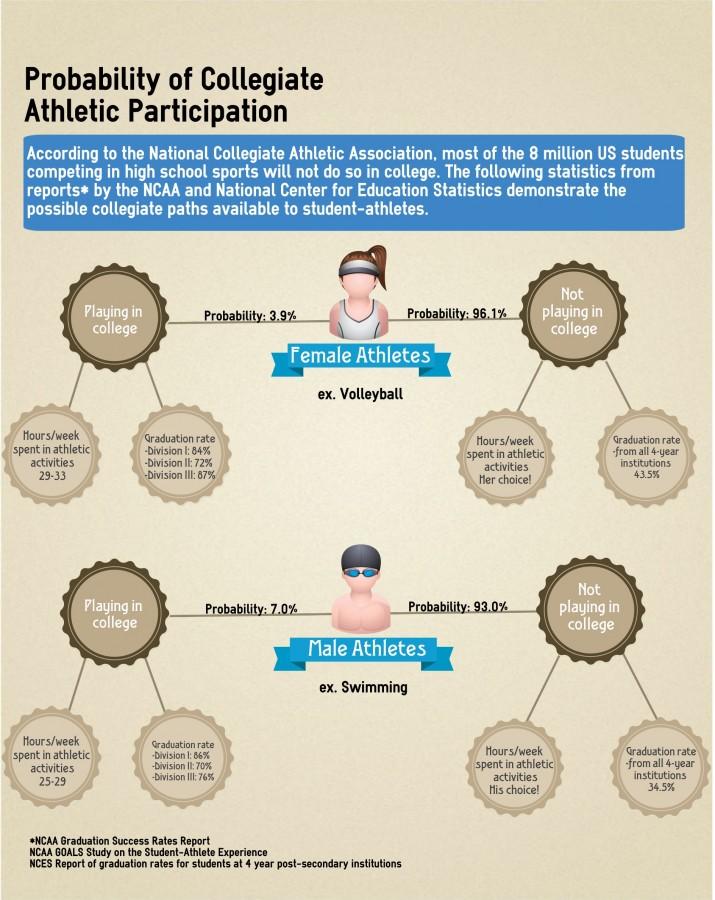More than a timeout: Senior athletes say goodbye to sports
January 26, 2016
Serious high school student athletes spend freshman through senior year defining themselves by their sports. Even beyond practices and games, athletes’ decisions center on achieving optimal performance in competition. But in college, most high school athletes become “former” athletes. How do NC athletes completing their final seasons expect to cope with this next transition?
Senior member of the 2014 Georgia volleyball state champion team Lizzie Daniel will not play for Georgia College and State University when she attends the institution this fall. Abstaining from collegiate athletics to gain more time for GCSU’s exceptional nursing program, Daniel expects to “have a lot more free time and have to be more hard on myself with the extra time” no longer dedicated to practice or games.

Despite playing in high school, most athletes quit their sport of choice after advancing into college.
Collegiate athletes, whose sports’ demands often equal those of full time jobs, do not enjoy similarly liberated schedules. The exorbitant time that high school athletes commit to practice and games increases exponentially for college student-athletes.
After four years of competing as one of NC’s top swimmers, senior Jake Byrd admits, “the practices get tiring.” Byrd cherishes his high school athletic experiences, but desires to shift his focus to academic and community involvement in college.
Athletes who do not compete in college will undoubtedly enjoy the opportunity to explore new interests. But for the first time in seven consecutive years, Daniel can no longer turn to a network of teammates for support or expect daily fitness as a guaranteed component of her schedule.
Although she admits the transition appears daunting, Daniel plans to take up “intramurals and [being] a student ambassador” to supplement anything lost from her former student-athlete lifestyle. Laughing, she admits she’ll struggle most with finding motivation to exercise regularly.
Students fearing the loss of teammates and close connections should realize those relationships exist in groups beyond collegiate athletic teams. Besides joining clubs and organizations, club and intramural level sports allow college students to continue competing and try new activities.
Valuing “the team bonding and the ability to work together to reach a common goal” associated with athletics, Byrd does not expect to lose those experiences in college. Although the transition requires him to alter where he seeks those relationships, collegiate extracurriculars offer unlimited opportunities to form such bonds.
NC athletes on the cusp of their collegiate careers as students, not student-athletes, should not view the transition as a loss or downgrade. The change will expand them, adding other interests and passions to their well-established athletic skills.
